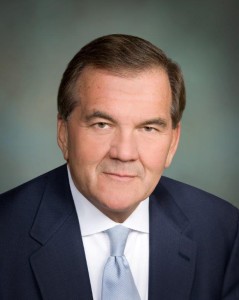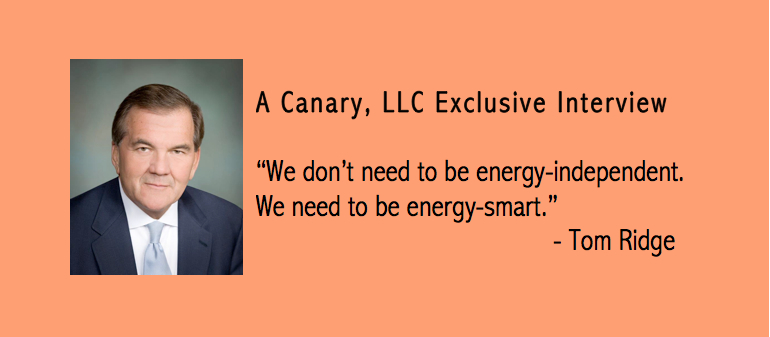“My name is Tom Ridge. I am a recovering politician,” he clucks as he delivers the warm-up for the dozens of speeches he gives each year.

Honorable Tom Ridge, former Governor of Pennsylvania (1995-2001), first assistant to the President, then US Secretary of Homeland Security (2001-2005), and now a private citizen and international business consultant, recently spoke to Canary about the importance of shale and renewables development, environmental responsibility, and an engaged US presence in energy diplomacy worldwide.

